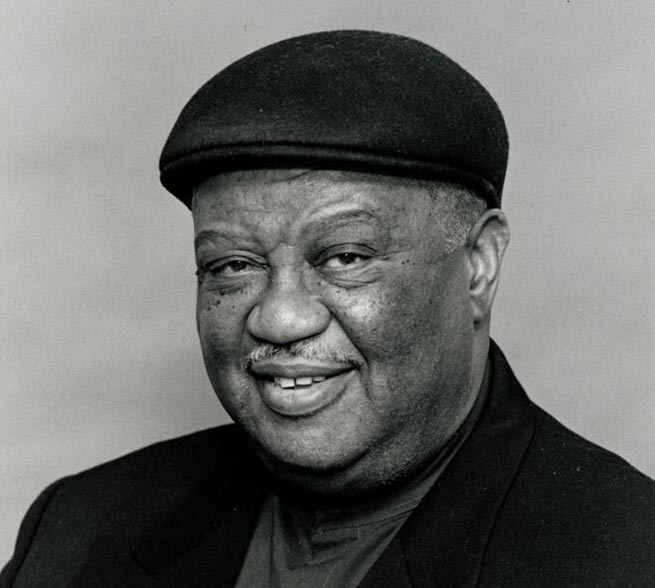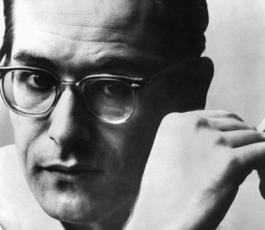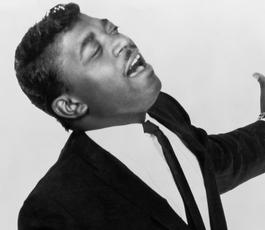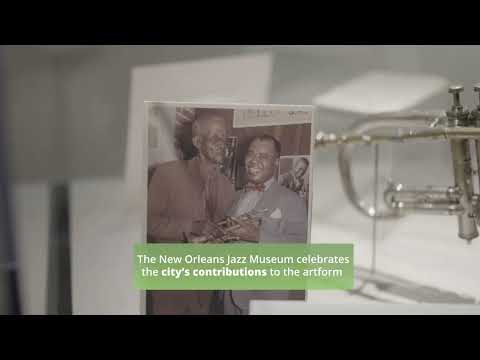North Blvd. & St. Louis St.
Baton Rouge, LA 70801
United States
Historic Site, Historical Marker
Open to the Public
Jazz clarinetist and composer Alvin Batiste was the highly regarded teacher of many noted jazz musicians.
A virtuoso modern jazz clarinetist, composer, recording artist, and educator, Alvin Batiste made his greatest impact as a beloved mentor to generations of jazz musicians. He founded and led the Jazz Institute at Southern University in Baton Rouge and helped create the New Orleans Center for Creative Arts. Many of the students Batiste taught during his more than 30 years at Southern University became major figures in music, including Branford Marsalis, Randy Jackson, Herlin Riley, Henry Butler, Donald Harrison Jr., and Roland Guerin.
Branford Marsalis expressed his esteem for “Mr. Bat,” as Batiste was known, by producing the clarinetist’s 2007 album Marsalis Music Honors Alvin Batiste and releasing the recording through his Marsalis Music label. Busy with his music education work, Batiste recorded only a handful of albums as a leader, including 1988’s Bayou Magic, 1999’s Songs, Words and Messages, Connections, and the major label debut he released at sixty years old via Columbia Records, 1993’s Late.
Though Batiste was an adventurous modern jazz master and composer, he played the clarinet in the vocal-oriented style of traditional jazz clarinetists in New Orleans. A continuously searching artist, he practiced daily into his seventies. “There’s no static condition in aesthetic expression,” Batiste explained.
Early Life
Born November 7, 1932, in New Orleans, Batiste obtained his first clarinet from his French-speaking father Edgar. A former clarinet player, Batiste’s father crafted a functioning clarinet for his son from tubing bought at a pawnshop and keys purchased from Werlein’s Music Store. “He took a screwdriver and sat down at the kitchen table,” Batiste recalled. “He put that boy together, played a few notes for me, and said, ‘Here, boy.’ ”
Batiste wasn’t interested in playing the clarinet until he heard jazz saxophonist Charlie Parker’s recording of “Now’s the Time” at a friend’s house. “It made my heart quiver,” Batiste recalled. “I said, ‘Man, he’s talking!’ … I started practicing seriously at that point.”
During his sophomore year at Booker T. Washington High School, Batiste rose to first clarinet. He continued his music education at Southern University, Baton Rouge’s historically Black university. In 1955, during his senior year at Southern, Batiste became the first Black student to perform at a New Orleans Philharmonic youth concert. He obtained a bachelor’s degree in music education from Southern University and later earned a master’s degree in composition and clarinet performance from Louisiana State University, the state’s flagship public university in Baton Rouge.
Performing and Recording
During a trip to Los Angeles in 1956, Batiste jammed with the then-unknown but future jazz great Ornette Coleman. In 1958 he toured with the Ray Charles Orchestra, playing baritone sax as well as piano when Charles was offstage. In New Orleans, Batiste backed blues star Guitar Slim and rhythm and blues singers Larry Darnell, Joe Jones, Smiley Lewis, and Little Willie John.
Batiste veered from the clarinet’s customary identification with traditional jazz in New Orleans by performing and recording with the American Jazz Quintet. A modern jazz ensemble in New Orleans, the group’s members included the clarinetist’s likeminded peers Ellis Marsalis, Harold Battiste, Ed Blackwell, and Richard Payne. In addition to his subsequent performances and recordings as a leader, Batiste recorded with Cannonball Adderly, Billy Cobham, Freddie Hubbard, Wynton Marsalis, and the clarinet quartet Clarinet Summit.
Batiste founded the Jazz Institute at Southern University in 1969 and served as artist-in-residence at New Orleans Public Schools in 1972. The following year he led the Southern University Jazz Ensemble in a US Department of State–sponsored tour of West Africa. He performed dozens of times at the New Orleans Jazz and Heritage Festival and appeared at such prestigious venues as Carnegie Hall, Lincoln Center, and the Bottom Line in New York and Theatre Boulogne in Paris.
A Lifetime Educator
Education remained the primary focus of Batiste’s life. In addition to teaching at Southern University, he wrote The Root Progression System, a music-education text that covers the fundamentals of African-American music. In 2002, following his retirement from Southern University, he taught at the New Orleans Center for Creative Arts, the public performing arts secondary school he helped launch in 1974.
In April 2007 Marsalis Music released Batiste’s album Marsalis Music Honors Alvin Batiste. Batiste planned to give the premiere performance of the album’s music a month later, on May 6 at the New Orleans Jazz and Heritage Festival. However, hours before he was to perform, the seventy-four-year-old died of a heart attack in his sleep. The Jazz Fest performance that had been billed as a tribute to Batiste became a memorial featuring Harry Connick Jr. and Batiste’s former students Branford Marsalis and Herlin Riley.
In the years after his death, on-stage tributes to Batiste were staged in New Orleans and Baton Rouge. Following the many accolades he received during his lifetime, the Arts Council of Greater Baton Rouge honored him posthumously by creating the Alvin Batiste Hall of Distinction Award.
Content provided by 64 Parishes, a project of the Louisiana Endowment for the Humanities.




